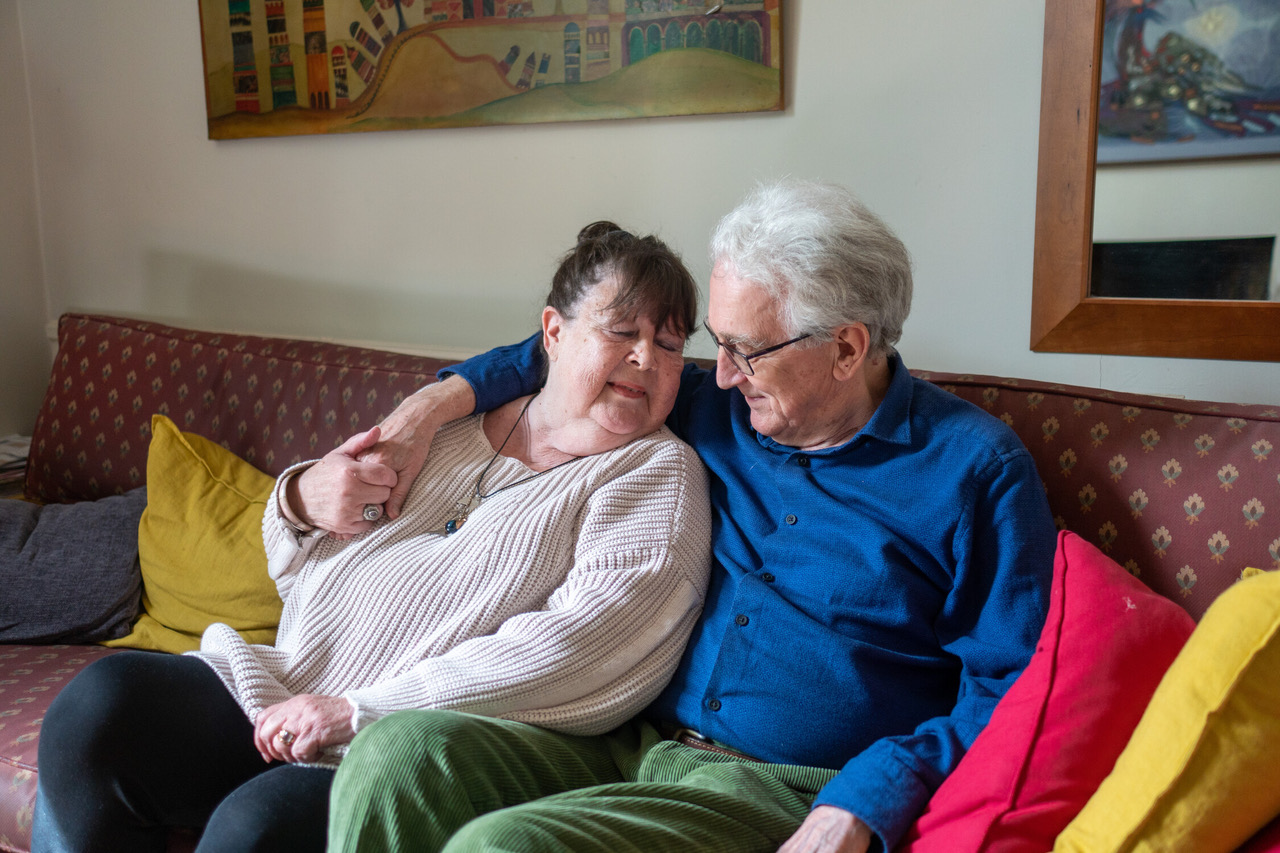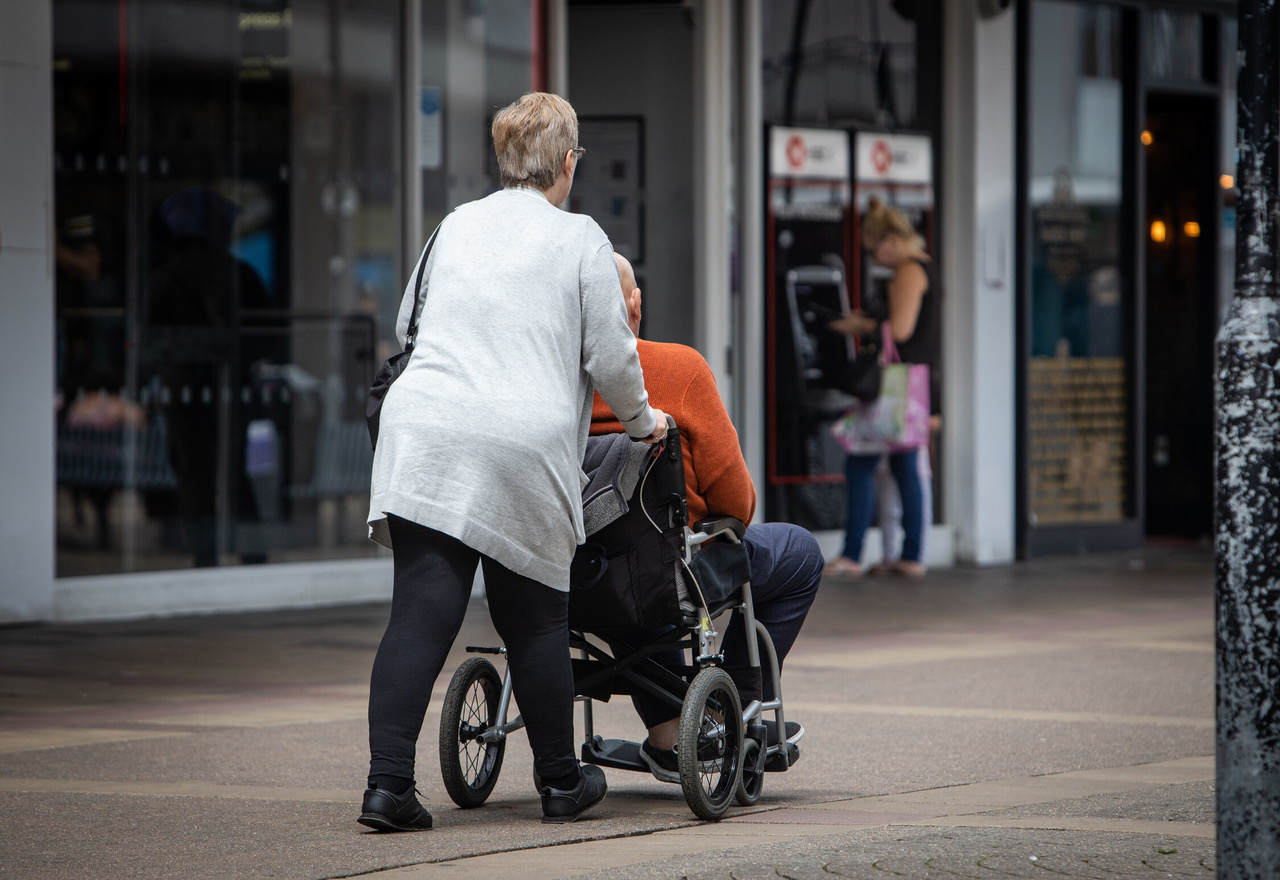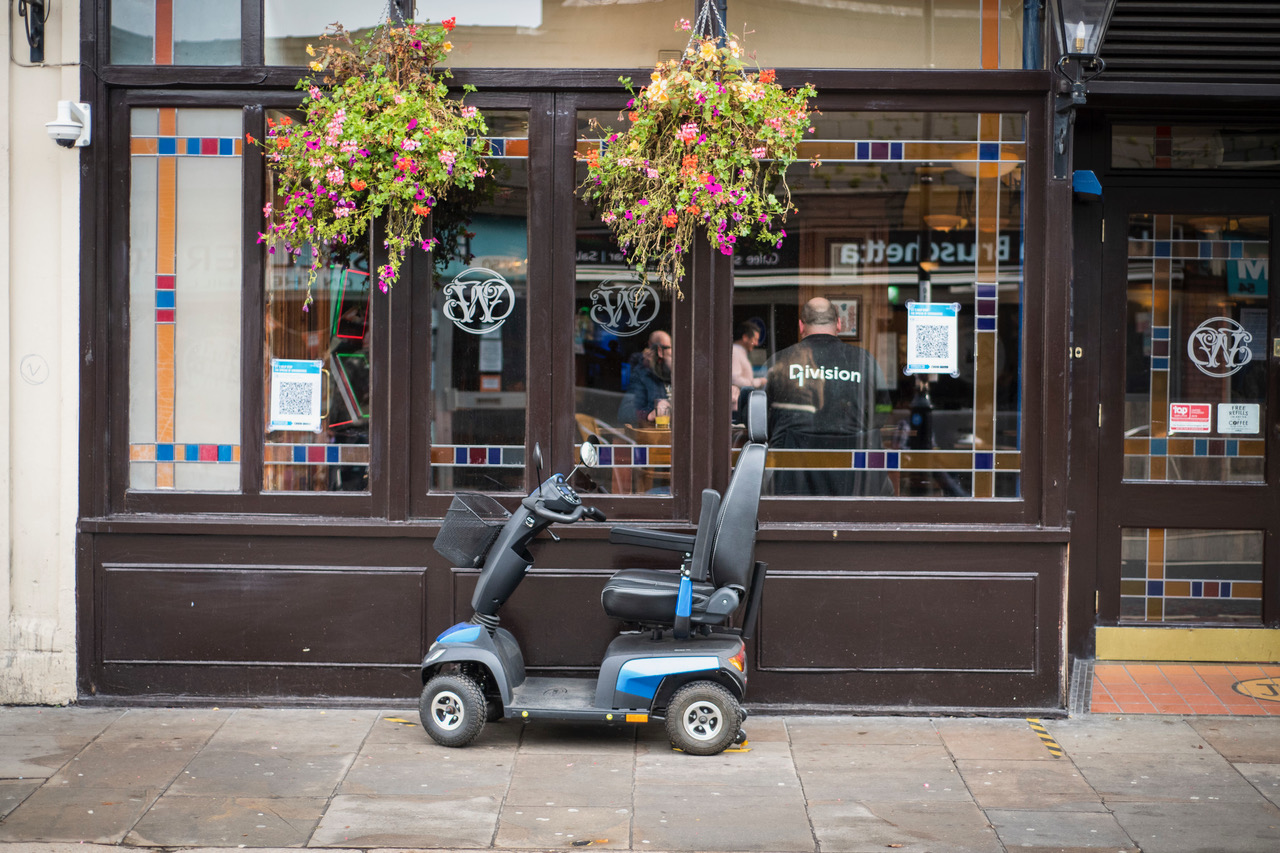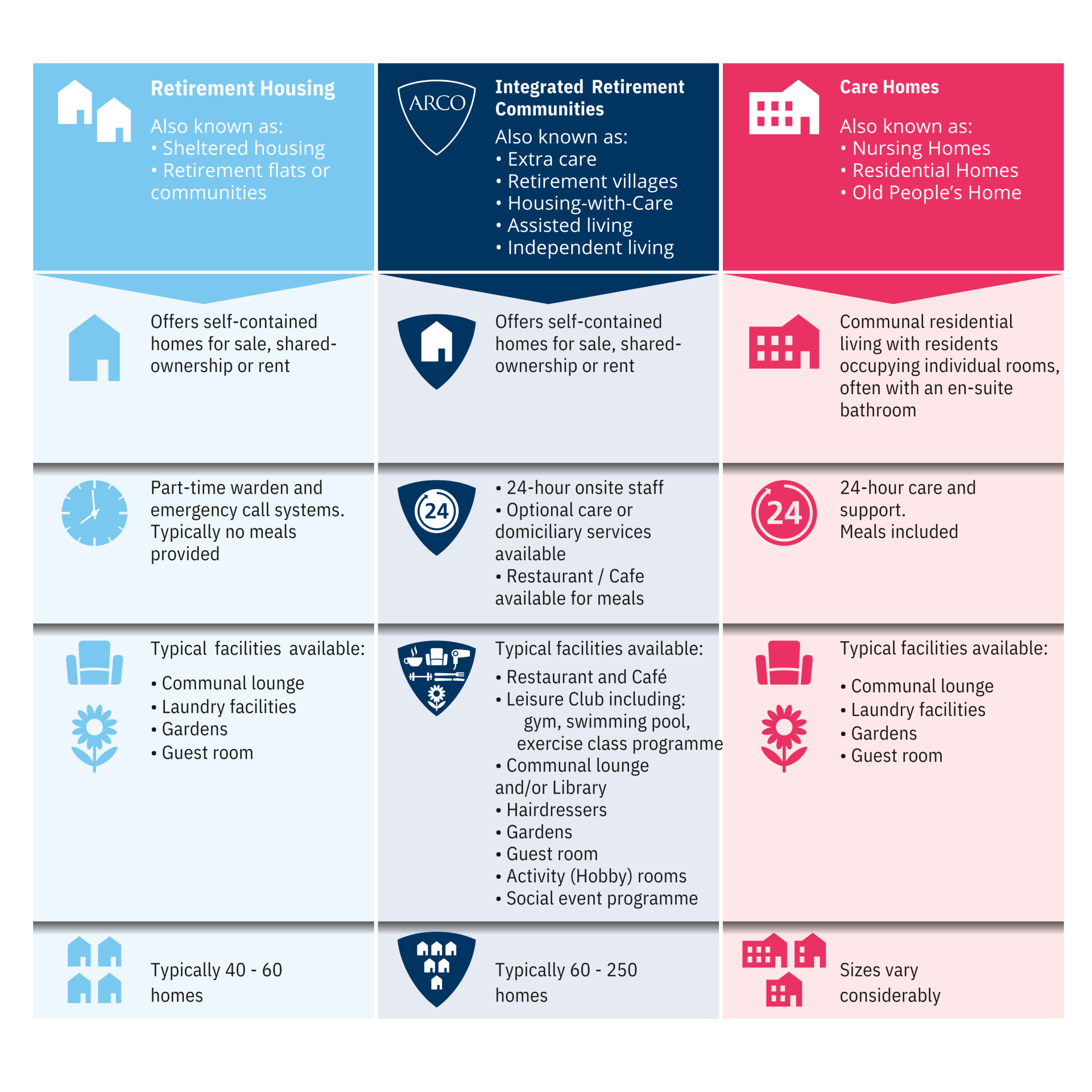Thinking of moving?
Sign up for the Hazel newsletter
We care about your data. Read our privacy policy.
Coping with caring (for older loved ones)

Finding yourself in the role of primary carer for a partner or parent can happen at any time, often with little warning. Some people seem to rise to the challenge and cope with whatever life throws at them. Others find their relationships truly tested as they adjust to understanding their loved one’s illness or condition and coming to terms with the limitations this can place on their everyday lives.
If you’re one of the ‘sandwich’ generation with dependent children living at home and/or you have working responsibilities, you might be wondering where on earth you’ll find the energy and resources to get through each day.
It's important to know that you’re not alone. There is a wealth of support available – practical, emotional and financial. Grab this help with both hands and be sure to look after your own health and well-being in order to be there for your loved one.
Understand what you are dealing with
Heading straight to ‘google’ is a natural instinct when illness or a condition strikes. And while information is power, it can also be very frightening. It is important to accompany your loved one to medical appointments to listen to the experts and ask them the key questions. Moreover, receiving bad news about a diagnosis will be a shock for the recipient and it is vital that you support your partner or parent by remaining clear headed and taking notes. You will want to know what is the next step? How long will you be waiting? What does treatment involve? What are the side effects? Any dietary requirements? Things to avoid doing, eating, drinking? What is the prognosis? Your GP or hospital consultant will often supply leaflets with further information.
Organisations that can help
Age UK is the leading charity offering advice and support for older people, with up-to-date information about help for carers, funding and arranging care, and financial support including pensions and benefits advice.
Some of the many organisations that offer information and support for people suffering from specific illnesses and conditions, and their carers are:
- Cancer – Macmillan Cancer Support offers a range of information and support including an online community where you can ask questions of an expert and join others for discussion and support about the particular type of cancer your loved one has
- Dementia – the Alzheimer’s Society offers a range of local support services and Dementia Adventure runs regular training sessions both in person and online to support carers in understanding the condition
- Diabetes – Diabetes UK offers information about Diabetes Type 1 and Type 2 along with advice and local support groups
- Heart disease – the British Heart Foundation’s website is full of advice and information including support for carers
- Arthritis – Versus Arthritis offers information for people living with arthritis and their families and friends.
- Depression – Organisations providing support for people suffering from depression and other mental health issues include Mind, Anxiety UK (which also offers advice about a wide range of phobias) and SANE, which offers a support forum for concerned carers, families and friends.
- Osteoporosis – The Royal Osteoporosis Society offers information and lifestyle advice as well as a free helpline for tailored information and support.
- Hypertension – the NHS website is always a good and reliable source of information for any illness or condition including high blood pressure.

Other forms of support
- Work – Many carers are pushed to breaking point by the unrelenting pressures of juggling so many responsibilities. Don’t suffer in silence. If your caring responsibilities are having an impact on your ability to carry out your work effectively, you need to talk this through with your manager or relevant work colleagues. Can you afford to reduce your hours or work more flexibly? Are there other family members who can help out whilst you are at work? Can you pay for carers who will visit? Will providing your loved one with a Personal Alarm with access to a 24 hour emergency helpline allow you the peace of mind to leave home and focus on your work?
- Giving up work completely might be tempting but avoid making any hasty decisions. Your job might provide you with a much-needed diversion from your caring responsibilities, as well as offering financial support and enabling you to keep paying into your pension. Can you take unpaid leave to give yourself some breathing space?
- Holidays – it may feel impossible to take the kind of holiday you have enjoyed with your partner or parent in the past. Fortunately there is a range of specialist accessible holiday companies such as Enable Holidays and Limitless Travel offering holidays and tours at home and abroad with accessible transport and hotels.
- Charitable organisations Dementia Adventure and Revitalise offer supported holidays in the UK with a range of care packages to ensure the carer is able to enjoy a break with their loved one. Financial support can be made available to those unable to afford the full cost.
Adapting your home
If your loved one is experiencing a loss of mobility, your home may no longer be a safe place. Staircases, steps, toilets and bathrooms can all present trip hazards for those unsteady on their legs. As a carer it is vital you avoid back and shoulder injury by trying to lift your loved one in the event of a fall, or by helping support their weight in everyday activities. There are some simple changes you can make to provide a safer and more comfortable environment, and there may be financial help available from your council to make minor adaptations and purchase equipment. Contact your council to arrange a home visit to carry out a Care Needs Assessment. Even if you are not eligible for help with funding, they will provide free information about the type of equipment you might find helpful and where to purchase. This page from AgeUK’s website offers more detailed advice.
In summary, the type of adaptations you might need include:
- Grab rails - Installing these at strategic points outside and inside the house help provide support and prevent falls.
- Stairlift/home lift - You might need help getting your loved one upstairs to the bedroom and bathroom and into your home itself if it is only accessible via a flight of steps. Stannah and Handicare are two companies that offer both indoor and outdoor stairlifts. Stannah can also install a home lift if you have the space.
- Bathroom and toilets- Elevated toilet seats with rails help your loved one to maintain independence and dignity. Grab rails on the bath, walk-in baths, bath lifts and shower seats all aid bathing. If you are considering a complete new bathroom, companies like Fine & Able can design beautifully accessible bathrooms including sinks with built-in hand grabs, stylish space-saving shower seats and shower doors.
- Wheelchair, rollators, mobility scooters and ramps - There is a huge range of wheelchairs and mobility aids that help your loved one stay mobile inside and outside of your home and also enable you to get out and about as a couple. AgeUK offers a helpful guide on this topic.
Choices include:
- Push along wheelchairs that rely entirely on the carer to push. Make sure you choose one that is small enough to get through doorways if you plan to use it throughout your home.
- Self-propelled wheelchairs – these tend to be larger and have handles for the carer to use to push but the user can propel themselves with rails around the wheels. Choose one with a folding backrest, swing away removable footrests and quick release wheels that will fit most car boots and be easier and lighter to lift in and out when dismantled.
- Motorised wheelchairs and scooters – from road-worthy models to small chairs that can fold up into a car boot. Motability provides a helpful guide to scooters
- Ramps - these can make a huge difference to your loved one navigating around your house and gardens with ease. There are folding ramps for use with wheelchairs, threshold ramps for doorsteps, ramps with handrails and ramps to help get a mobility scooter into a car boot. Ready-made ramps of varying sizes are available through companies like MobilitySmart

- Bed and hoist - automatic adjustable beds are ideal for someone who needs a little help sitting up in bed or who needs to sleep in a raised position. A bed with a rotating sit up and twist around movement is ideal to help those with poor mobility get out of bed each day. And for those with little movement, or the bed-bound, a hoist is ideal to lift them from their bed into a chair or to enable bedding to be changed.
- Chair recliner and ejector - If at all possible, try to keep your normal living room furniture as the act of getting up and sitting back down encourages muscle use. But if the struggle becomes too much, a chair that eases a person into a standing position is ideal. HSL offers a chair-fitting service and will bring chairs to your home to trial.
Bringing in carers
If you are unable to manage alone, and/or are reluctant to carry out intimate care for a parent or loved one, you may be entitled to homecare help from a carer. Your local council will carry out an assessment to determine whether you’re eligible for help. These articles from Age UK and the NHS website provide useful background on eligibility and paying for care
Moving to a retirement housing, integrated retirement community or care home
If you find you are unable to remain in your home, it might be in your best interest to consider moving to a more suitable environment.
There is a significant knowledge gap between all the different types of accommodation that are available and people’s assumption that they are all like care homes. Many offer meaningful independence and some offer graduated care options as health changes with time.
Age UK outlines a number of options but this graphic from ARCO (the main body representing the UK Integrated Retirement Community sector) is helpful for understanding the different names and offerings of later life living options.

Assisted living enables you to maintain independence – you have your own home in a self-contained flat and your own front door but staff are available to provide a range of support up to 24 hours a day.
Retirement villages are purpose-built villages for older people only with a range of properties available to buy, rent or part-buy. Facilities can include a range of personal care services as well as on-site activities that allow you, the carer, to enjoy hobbies and pursuits and socialising on your own doorstep. It is important to check what services are available to you before committing. Check out the Hazel location and property search tool to find a local one to you.
A care home/residential home might be the best solution if you are unable to offer the specialist care your loved one needs. It can be a heartbreaking last resort but you may have no choice if you are unable to keep them safe and they are becoming a danger to you or themselves. AgeUK has some helpful information and guidance on this topic.
Summary
No one wants to become unwell, often losing their mobility and independence as a result, and, as a carer, it is vital to try to put yourself in their shoes. Imagine how frustrating it must be for them to be unable to do things for themselves. Consider how you would want to be treated if the roles were reversed.
Remember the person you fell in love with, or your parent when they were fit and healthy. It is natural to mourn the loss of the life you had hoped to share together, but taking practical steps to access the help available can enable you to find a way to adapt, readjust and do more than just cope.